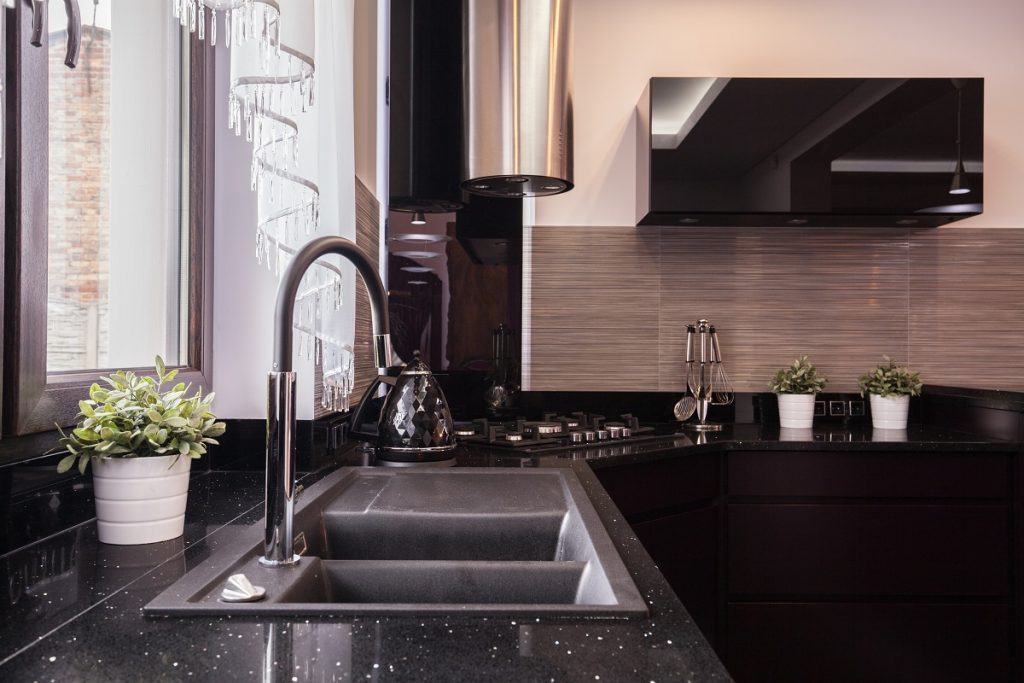Concrete sealers are a crucial element in maintaining concrete surfaces. The sealant acts as a protective layer to prevent damage, staining and corrosion. But with the array of products for concrete sealing, it can be hard to choose which one is appropriate for your project.
Here’s a cheat sheet on the different kinds of concrete sealers and they’re different attributes.
Acrylic Sealer
Acrylic concrete sealers come in either solvent-based or water-based formulations. They’re the most economical type of sealer, plus they’re easy to apply so they’re beginner-friendly. After applying, the acrylic forms a thin but visible film that increases the concrete’s resistance to chloride intrusion and water corrosion.
Acrylic sealers are non-yellowing and UV-resistant. They’re also available in different levels of sheen, so you can choose the degree of gloss for the surface. Keep in mind, though, that acrylic sealed concrete can be slippery, especially when wet.
This type of sealer is perfect for decorative indoor and outdoor floors, like coloured, stamped or aggregate concrete because its lustrous finish enhances the look of the surface.
Acrylics are designed for thin applications, so be careful in applying the sealer too thickly since the layer may crack and produce ugly, white spots. Acrylic-sealed floors also need frequent reapplication since the layers are thinner.
Penetrating Sealer
Contrary to acrylic sealers that just sit atop the surface; penetrating sealers sink into the concrete and react with it chemically. This forms a shield that provides protection against de-icing chemicals and moisture penetration. Penetrating sealers safeguard the surface from freeze-thaw damage.
Penetrating sealers leave an invisible, matte finish. Since they don’t leave a glossy film, they’re perfect for outdoor concrete surfaces, like driveways and pathways where good traction is crucial. They come in silane/siloxane or silicate/siliconate variants.
Epoxy

Epoxy provides the highest resistance against abrasion. It also gives a high-gloss finish, which makes it an excellent water repellent as well. Epoxy sealers are available in clear or different hues, so you can add colour to the surface as you please.
This type of sealer is generally limited to indoor use. The high-gloss sheen enriches the colour and design of the surface while protecting it from scratches. This makes epoxy ideal for high-traffic floors and kitchen countertops.
Most epoxy variants are two-component products that you mix before application. Once it’s mixed, you have to apply it immediately before it begins to set. Epoxy tends to be viscous, so you need to apply it using a squeegee and a lint-free roller.
Polyurethane
Polyurethane sealers are similar to acrylics, but they come in a thicker formulation. Like acrylic sealers, polyurethane forms an invisible film that protects the concrete from abrasion and damaging chemicals. It comes in both solvent- and water-based variants with a range of sheen levels.
You can use polyurethane sealers on interior and exterior surfaces. They give a highly durable, non-yellowing finish, perfect for high-traffic areas that are prone to scuffs and staining. Polyurethane enhances the aesthetic value of stamped, aggregate and coloured concrete.
Most polyurethanes are intolerant to moisture until you properly cure them, so you can’t apply them on wet surfaces. Otherwise, the finish will develop foam and bubbles.
Always ask the manufacturer or the vendor which type of sealer is the most appropriate for the surface you plan to coat. If you’re unsure about doing it yourself, hire a contractor to ensure the sealing is adequately applied.

